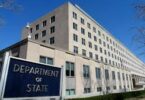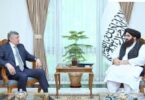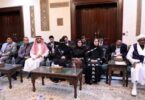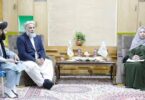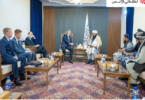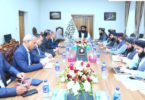Monitoring Desk
KABUL: The International Monetary Fund (IMF) has praised the Afghan government’s measures in structural reforms and the pursuit of self-reliance despite persist challenges, the Finance Ministry said Tuesday.
Addressing a press conference at the government media office in Kabul, Ajmal Hammed Abdulrahimzai, Ministry of Finance spokesman, said: “The Executive Board of the IMF successfully completed the second review of the arrangement under the Extended Credit Facility (ECF) for Afghanistan.”
He said the IMF had appreciated “the commitments and performance of Afghan government in the areas of maintaining financial stability, economic growth, macroeconomic stability, and implementation of reforms in financial sector, increased anti-corruption steps and providing job opportunities for Afghans.”
In an IMF assessment report released Friday, the IMF executive directors commended Afghan authorities’ commitment to economic transformation in pursuit of their objective of raising inclusive growth, boosting job opportunities for the rapidly rising population, and reducing aid dependency.
IMF directors have also welcomed the progress with financial sector reforms for Afghan banking system stability, financial inclusion, and economic development.
They also commended the progress in anti-corruption measures, particularly by criminalizing corruption in line with the United Nations Convention against Corruption and requiring asset declarations by Afghan officials.
Abdul Rahimzai said the High Economic Council under the leadership the President had given required instructions on key economic issues and attracting investment in Afghanistan to the ministries and government institutions for economic self-sufficiency, financial stability and national interest.
“The High Economic Council approved the establishment of a center for processing, trading and prevention of smuggling precious and semi-precious stones. It is decided that, in order to encourage the private sector in Minerals, the needs and fair royalty of the departments should be specified.”
A committee should be determined for storing urea, to study its quality and take required decision for selling and using it, he said about the approvals of the 16th meeting of the High Economic Council at the Presidential Palace.
“With Inauguration of the second phase of the Kajaki Dam, the capacity of this section will increase from 51 to 151 MW. The government carries out its contract according to the public-private partnership law, and its procurement process will begin,” he said, regarding the High Economic Council for opening the 2nd phase of Kajaki Dam.

